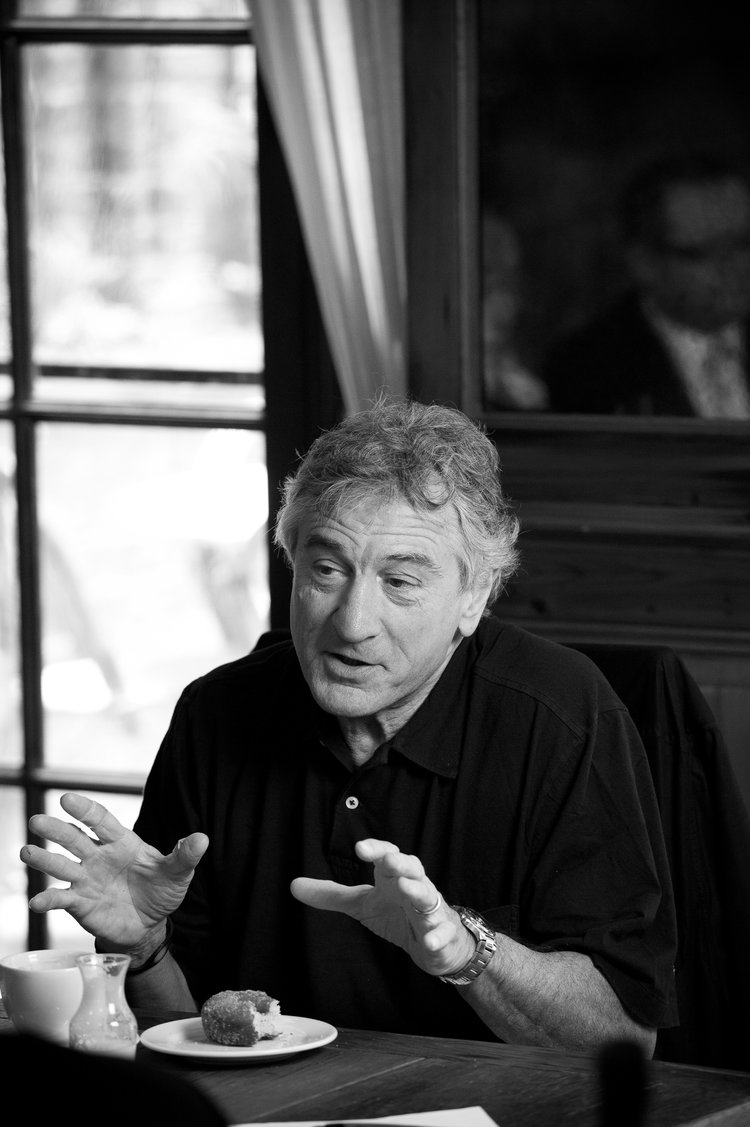

WRITTEN BY CHRISTOPHER METLER
IMAGES PROVIDED BY NOBU HOSPITALITY GROUP
Nobu has undeniably become the world’s most famous name in Japanese cuisine. But the climb to the top has been a tough one, fraught with failure and much disappointment along the way. What it took to get through all that was blind ambition, an unyielding commitment to quality, and someone who believed in him.
That person was Robert De Niro.
Now, with over 30 locations around the world, Nobu Hospitality has grown into a global empire that has succeeded all expectations. With a Toronto outpost (the first in the brand’s foray into a residential, hotel, and restaurant hybrid) developed by Madison Group and set to debut in the near future, the two friends and business partners continue to reach new summits, but have never forgotten their humble beginnings.
This is their story.
THE ACTOR & THE ENTERPRISER


“DON’T LET YOURSELF GET ATTACHED TO ANYTHING YOU ARE NOT WILLING TO WALK OUT ON IN 30 SECONDS FLAT IF YOU FEEL THE HEAT AROUND THE CORNER.”
Tracing its origins to Michael Mann’s crime opus, Heat, perhaps no piece of dialogue throughout his storied cinematic career better characterizes Robert De Niro, the actor.
From Taxi Driver to Raging Bull,The Godfather Part II to The Deer Hunter, Mean Streets to Goodfellas — the two-time Academy Award winner built his name playing hard-line characters; explosive personalities who favoured to live by the gun and were just as content to die by it, too. These roles long ago rendered De Niro arguably the finest thespian of his generation, establishing his place in Hollywood’s canon of greats.
But the oft-quoted line — as delivered to Al Pacino in their iconic first on-screen showdown — is one which curiously belies Robert De Niro, the enterpriser. For however unbending the celluloid version of De Niro is prone to take shape, the genuine article has proven himself every bit as receptive in engaging bold new horizons.
“I get involved in projects that I really believe in and feel will work,” he quietly remarks.
Sometimes, they’re just an organic fit. Take Tribeca Productions, established by De Niro in 1991 to help revive interest in films shooting on location in New York City. Or the resplendent Greenwich Hotel, which he spent six years perfecting — a level of preparation reminiscent of the performer’s fabled Method style.
And sometimes, they owe their roots to a greater cause. Like when De Niro co-founded the Tribeca Film Festival in response to the September 11th attacks — and what he perceived as the neighbourhood’s consequent loss of vibrancy. The festival now draws an estimated three million people, generating $600 million annually.
Regardless of the incentive, let it be said that Robert De Niro has never shied away from enhancing his portfolio of capital ventures.
All it ever took was the right opportunity to come along.
THE HARD-LUCK KID
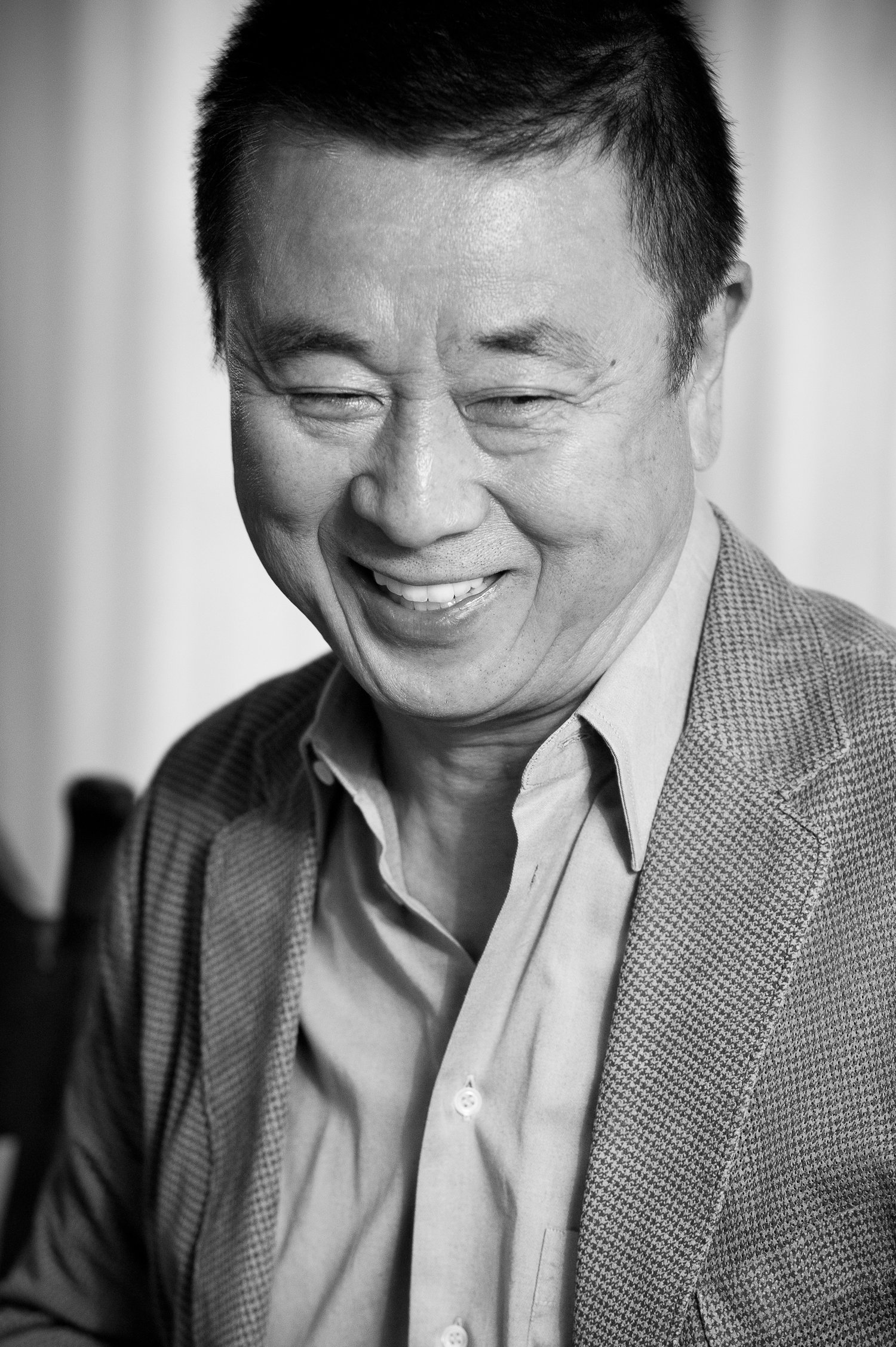

“MY MOST ENJOYABLE MEMORIES OF FOOD CAME FROM THE JOY OF MY FAMILY GATHERED AROUND THE DINNER TABLE.”
Growing up in Saitama, in the Kantō region of the Japanese island of Honshu, chef Nobu Matsuhisa slept near the kitchen.
“I would wake every morning to the sounds of my mother working, and the aroma of stock and miso as my mother made soup.”
He reminisces further. “She did not make elaborate or time-consuming dishes, but she could whip up a meal without wasting time, using whatever ingredients she had on hand. It made her happy to see us enjoy her cooking. My most enjoyable memories of food came from the joy of my family gathered around the dinner table.”
Little did Matsuhisa anticipate the amount of strength he would soon be forced to derive from those childhood impressions. Because to label his own start in the kitchen as an embattled one would be generous.
After securing his first job in a Tokyo restaurant washing dishes during his teenage years, Matsuhisa decamped for Lima after meeting a Peruvian customer of Japanese descent. He yearned to see what the world had to offer, and when the customer had asked if he would consider moving to the South American country to open a sushi restaurant, he jumped at the chance. Fresh fish was never in short supply given Lima’s geographic proximity to the ocean, and Matsuhisa was one of only a few Japanese chefs in town at the time, providing a rare opportunity to hone in on his technique and carve out a reputation for himself. Things were going very well, until they weren’t. An artist, Matsuhisa’s dedication to his craft often clashed with his business partner’s pursuit of profit, which called for lower quality fish in order to reduce costs. So tumultuous was their relationship that, after three years of constant arguing, Matsuhisa decided to leave the business entirely, eventually landing him in Buenos Aires working at another sushi chef’s restaurant.
Given that the local diet consisted primarily of meat, sourcing fresh fish proved to be difficult. Not only that, but wages were low and soon, Matsuhisa saw his savings slowly start to dwindle away. He moved back to Japan with his family after about a year to work at, yet another sushi chef’s restaurant. Feeling creatively stifled and ever so ambitious, he once again embarked on a journey, this time for Alaska (of all places) after hearing of Anchorage’s booming oil industry and reputation as a stopover hub for planes flying from Asia. With a friend, he opened his second sushi restaurant and worked tirelessly to realize his vision, only to see it literally go up in flames after a fire burned it down to little more than ashes.
The entrepreneurial set will often tell you that it takes blind ambition in order to reach the top; the mere thought of any other alternative is never an option. In spite of these early failures, Matsuhisa’s time abroad kindled an inventive style — one galvanized by his immersion in new cultures and regional ingredients. Moreover, his previous professional defeats would help establish Matsuhisa’s iron-clad determination to face the road ahead. Surviving all he’d been through, he had nothing left to lose in the pursuit of his passion.
This willingness to sacrifice everything ultimately landed Matsuhisa in Los Angeles, where he spent several years toiling away at a humble sushi joint before it eventually went up for sale.
This, Matsuhisa decided, would be it.
With the help of his friend, he purchased the restaurant and named it Matsuhisa.
“For my family, I found determination and decided this was going to be my last attempt at achieving my dreams. By that point, I was only looking at what was here and now, not down the road.”
AN UNLIKELY PARTNERSHIP IS BORN
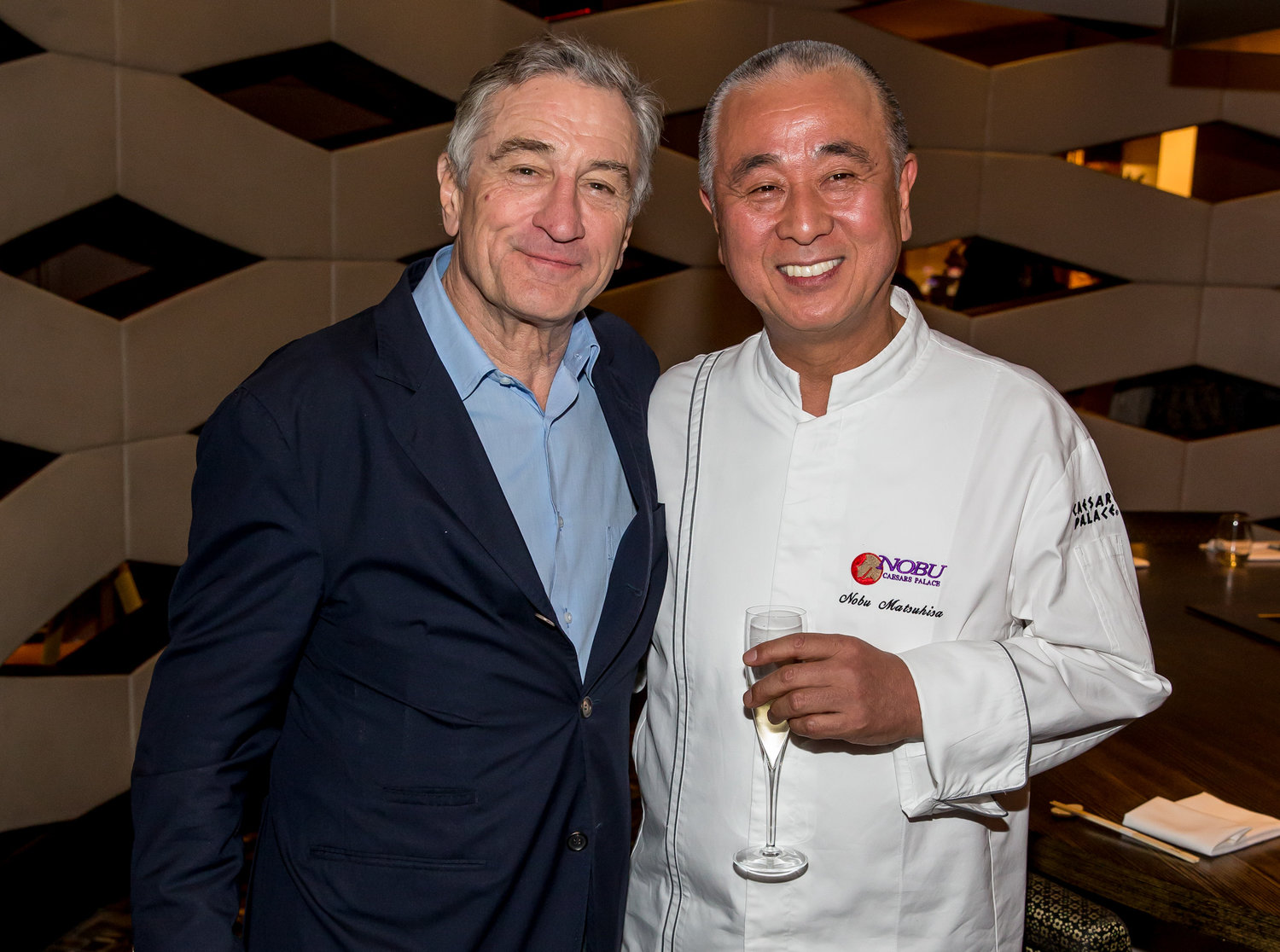

“I KNEW IF SOMEONE WAS WILLING TO WAIT THAT LONG FOR ME, HE REALLY BELIEVED IN ME AND MY FOOD. THAT MADE ME TRUST HIM.”
Matsuhisa Beverly Hills opened in 1987. By ushering in experimental Peruvian-Japanese fusion for Hollywood’s affluent and famous, the avant-garde eatery put Matsuhisa’s star on the rise almost instantly.
It wasn’t long until a familiar face the world over — to all except to Matsuhisa himself, that is — walked through the doors.
“The first time I met Bob,” Matsuhisa recalls, “he came in to dine with one of our regulars. Although the name Robert De Niro sounded familiar, I had no idea who he was.”
The way Matsuhisa tells it, De Niro particularly liked the Black Cod Miso, a signature dish, and he would drop by whenever he was in town.
“Eventually, Bob suggested we start a restaurant together in New York, but I wasn’t ready.”
Matsuhisa’s primary focus was to develop the location, as well as continue chipping away at cumulative debts. Perhaps of greater significance, though, he sought additional time to hone his cuisine and brand. Years of hardship and failure had taught Matsuhisa to tread cautiously. This was, after all, his last attempt, and he could not risk jeapordizing everything he worked so hard to build up – yet again.
While you might assume few restaurateurs in Matsuhisa’s position would dare tell someone of De Niro’s stature to wait, that’s precisely what he did. More than once, in fact.
The gamble paid off.
Matsuhisa’s business garnered significant attention. Newspapers and magazines wrote about it. Critics raved. Influential circles couldn’t get enough. Matsuhisa Beverly Hills became the place everyone who was anyone wanted to eat.
Inevitably, four years after his initial offer, De Niro came ringing again. Only on this occasion, Matsuhisa was prepared to answer the call.
“I knew if someone was willing to wait that long for me, he really believed in me and my food. That made me trust him.”
In 1994, the duo unveiled Nobu New York.
A PLACE TO BE SEEN
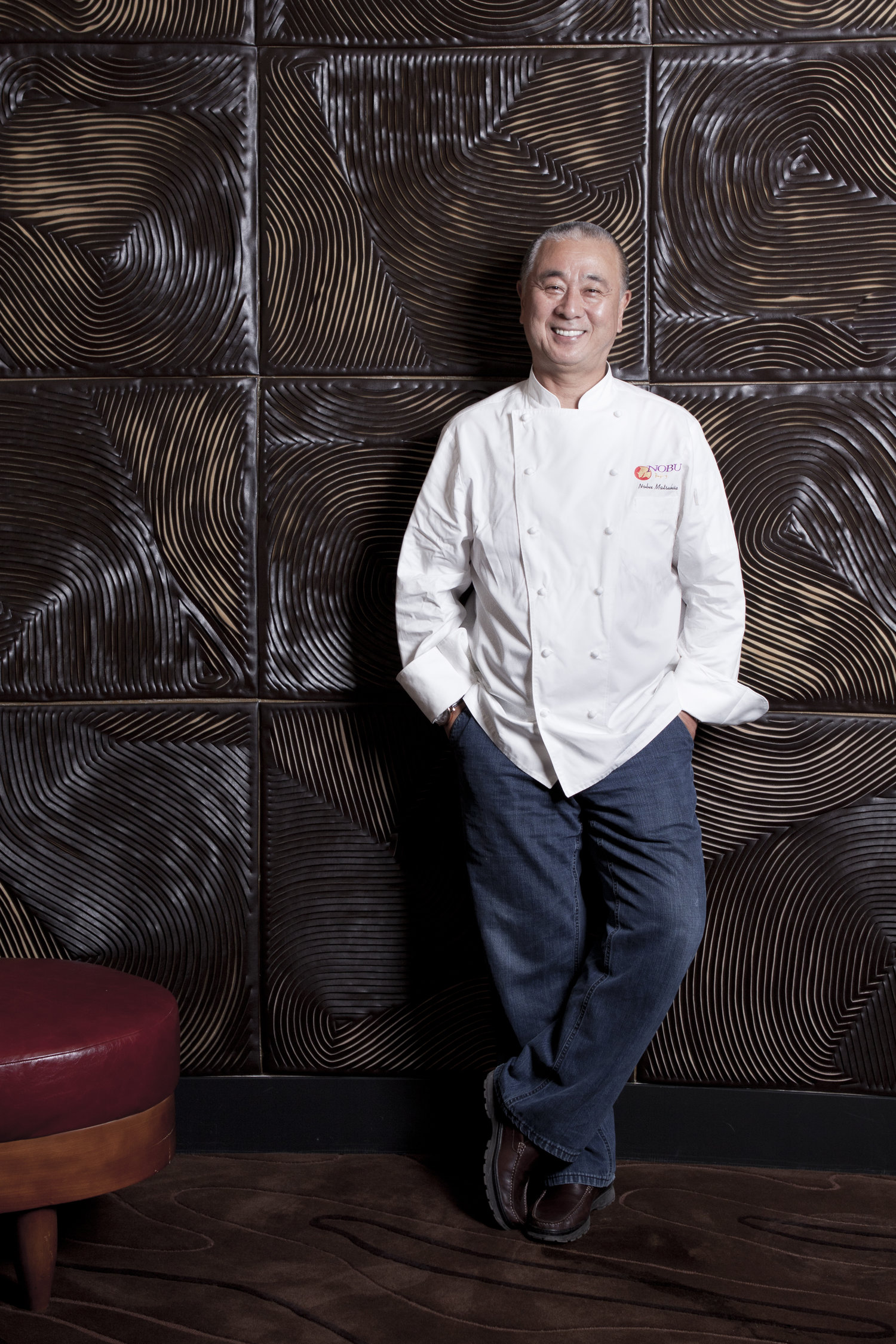

Trust goes a long way. As it pertains to the De Niro and Matsuhisa collaboration, their rock solid belief in the ability and strength of one another propelled Nobu’s award-winning ‘new style’ Japanese fusion to dizzying heights.
Acclaimed by celebrities, tastemakers, powerbrokers, and discriminating diners worldwide, Nobu today is considered one of the most aspirational dining experiences in the game. Operations currently span over 30 establishments across five continents, with venues stretching as far as Dubai, Cape Town, Budapest, Moscow, and beyond. It’s the most Googled restaurant on the planet.
In an industry beholden to trends, Nobu owes its ongoing triumph to a lasting philosophy, according to Hollywood film producer Meir Teper, a principal voice in Nobu. Since the beginning, he’s helped bring the vision and foresight of the brand to life.
“Chef Nobu creates art and theatre in all his restaurants, consistently. Every customer is offered an unforgettable presentation each time they dine. Service, design and the cuisine are the three most important elements in our business.”
“To me,” explains Matsuhisa, “food is like fashion — constantly evolving. But the foundation remains the same. I think keeping this in mind makes it possible for the Nobu concept to thrive in any environment.”
PART II: EVOLUTION AND GROWTH
THE NEXT MOVEMENT
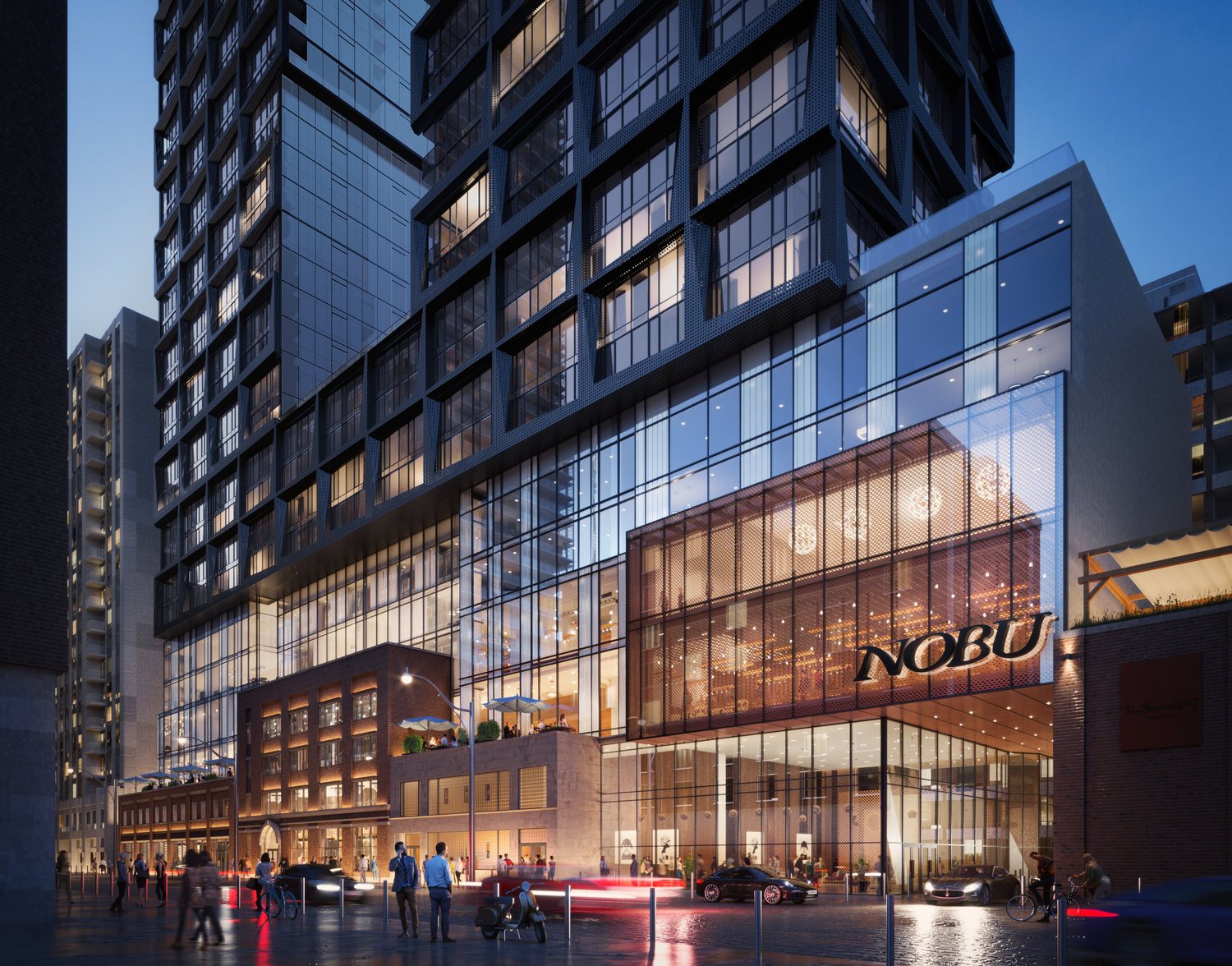

Nobu launched its first hotel in 2013, a boutique site within Caesars Palace Las Vegas. The idea to navigate the brand into previously unchartered territory was De Niro’s.
“He’s my good partner,” Matsuhisa once told The New York Times when asked about Nobu’s expansion. Although succinct, his answer communicates that unshakeable conviction between the two. As if to suggest there’s no limit to what their relationship can achieve, or any frontier too distant.
In gauging how prosperous the hotels hosting Nobu restaurants had become — merely by accommodating one on their premises — the move was deemed a natural next step. After all, Nobu’s universally revered cuisine and high-level service already made the brand hugely attractive to global markets.
“We have something people want,” De Niro mused in that same New York Times interview. “Why not do it ourselves?”
Enter Trevor Horwell, CEO of Nobu Hospitality. A visionary of the bespoke hotel business, Horwell’s been instrumental in evolving the luxury lifestyle hotel and residential concept throughout North America, Europe, the Middle East, and Asia.
With Nobu Hotels, Horwell beholds the prospect to comprehensively stamp Nobu’s influence on modern hospitality — an idea he feels recognizes a “vibe and tone very much determined by how the local market reacts.”
For example, Horwell points out that all Nobu hotels possess a restaurant component, even in cities where Nobu already entertained a separate dining outpost. “It’s important that we introduce the hotel as a natural progression, and, therefore, entice the existing Nobu customer to experience it. This was the case in Miami and Malibu.”
Claiming auxiliary locations in Manila, London, and Ibiza — with Riyadh, Marbella, Los Cabos, and Chicago to follow — Nobu Hotels spotlight the best of everything: imaginative new restaurants, high-energy bars, relaxing rejuvenation, distinctive service, remarkable retail, and an air of celebrity.
No different than when he originally invited Matsuhisa to New York, De Niro’s instincts about the Nobu expansion were bang on. And just as the case was then, Matsuhisa’s conviction in his partner’s intuition has been similarly rewarded. Due to overwhelming demand, Nobu recently declared the intention to further expand its global portfolio of hotels. Meaning the question going forward isn’t when another would Nobu Hotel land, but where?
THE RIGHT PLACE, THE RIGHT TIME
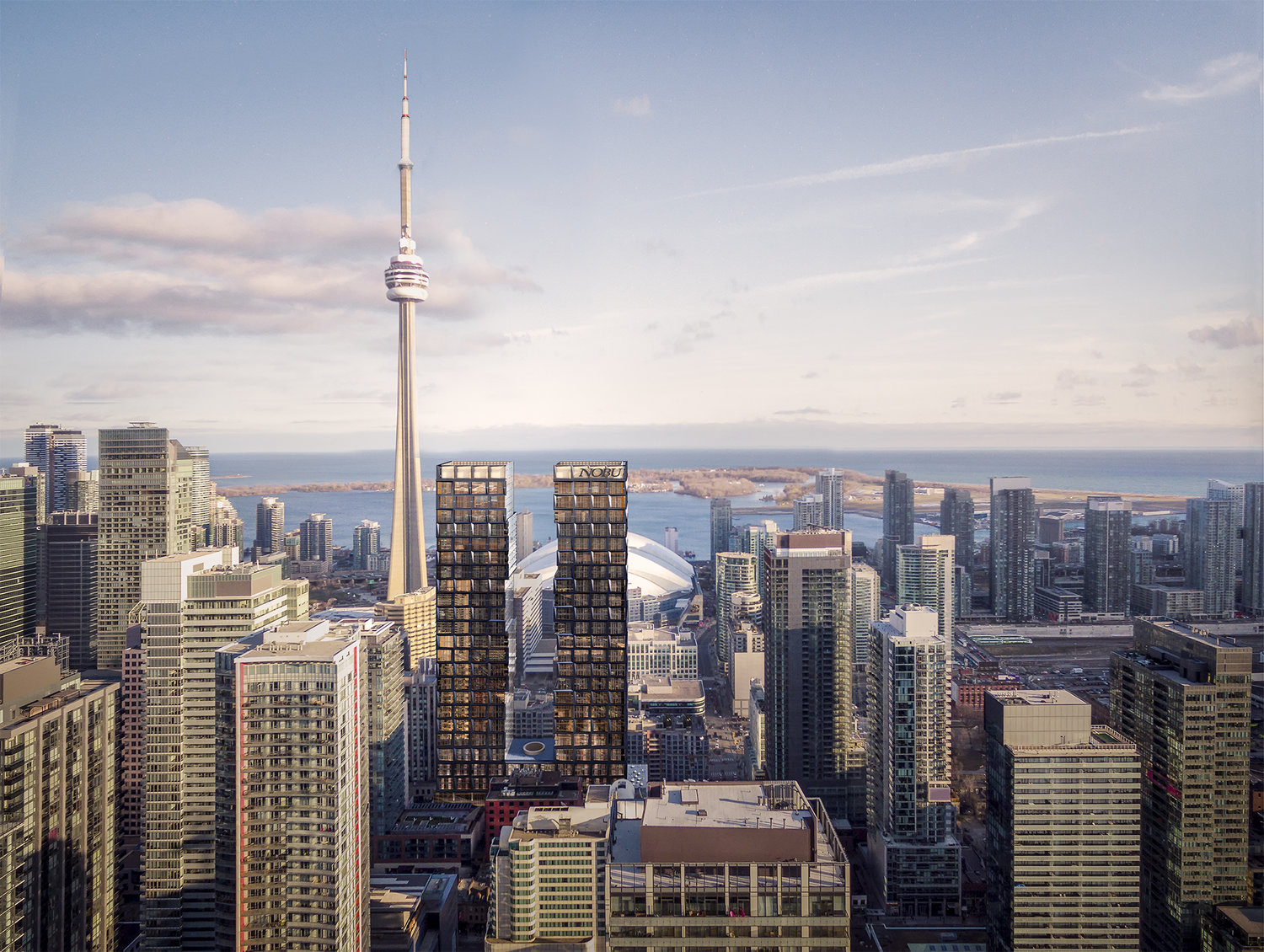

De Niro is no stranger to Toronto. Like his many showbiz contemporaries, he’s frequented TIFF over the years. “It’s a great festival,” he opines. “It’s really put the city on the map.”
But De Niro’s most recent trip to Canada’s Toronto — this time alongside Matsuhisa — isn’t to premiere his latest motion picture. With a few key players in tow, the duo have huddled at Roy Thomson Hall in front of an audience of thousands. They’re here to announce Nobu’s much-anticipated arrival to town — where it will occupy an enviable location in the heart of Toronto’s vibrant entertainment district.
“The timing could not be more perfect,” Horwell raves. In fact, he can can hardly contain his delight, calling Nobu an exciting and dynamic brand that appeals to the celebrity market — itself so closely entwined in fashion, real estate, film, and media. In the same breath, he praises Toronto as a progressive city, advancing culturally through film, as well as the culinary scene.
“It’s a cosmopolitan hub of sophisticated residents and global visitors who will appreciate what Nobu has to offer. And with an increase in migration, we feel it’s time that Nobu make its mark in Canada. Toronto is a great place to start.”
De Niro agrees, crediting Nobu’s Canadian entry to a combination of factors — from Toronto’s growing population and wealth of culture to what he describes as “Torontonians’ appetite for great food.”
And he isn’t wrong. In recent years, the city has exploded with a diverse range of standout eateries, power restaurateurs, and its own brigade of celebrity chefs. Food culture is strong, alive, and doing very well here.
Yet while Matsuhisa is bullish about Nobu’s new Toronto digs — himself citing its sophisticated diners, rise in luxury options, and the desire for people to enjoy experiential nights out as a “natural fit” — he acknowledges that introducing Nobu to a new destination isn’t necessarily the same as it was 15 or 20 years ago. The challenges are much greater.
“Because we have become such a global brand, most are already aware of who we are before we even open in a new location. I also feel as though individuals are more adventurous when it comes to dining. They like breaking away from the norm and trying new things.”
This onus is on Nobu to keep their approach fresh and relevant for whatever market they enter. At the end of the day, maintaining a loyal customer following is one of the most important parts of their business, and building that base is just as important.
Whenever Nobu Hotels considers breaking ground on a new destination, they allocate utmost importance on whether the project brings value to its respective community, and if a sense of place is welcomed. Surveying Toronto — which ultimately made the grade — was no different.
“We look for interesting destinations and the right partner who can support the commitment to a quality product,” Horwell adds, “and who will support our culture and philosophy. We need to properly assess the location and ensure there is a high-level of demand for a hotel and restaurant of our caliber. We always evaluate that carefully.”
EXTRAORDINARY LIVING
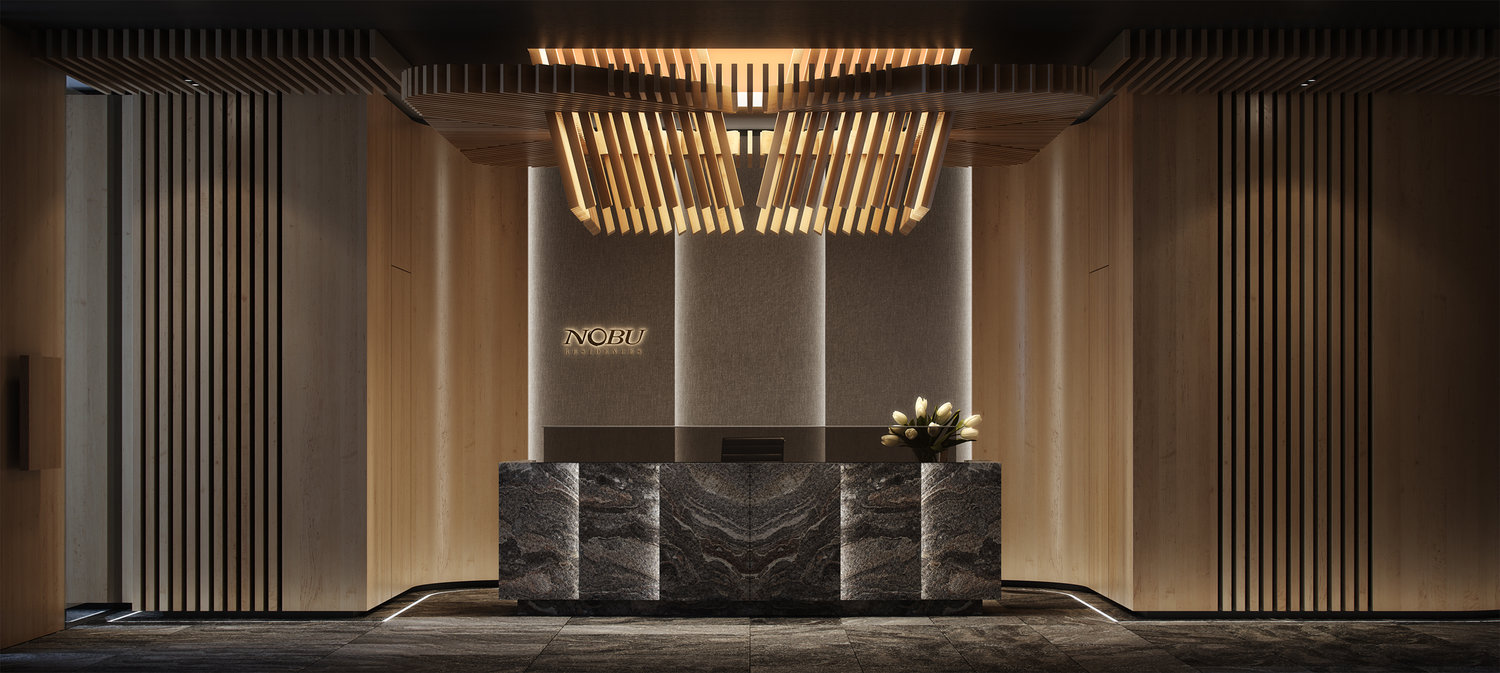

“I THINK TORONTO HAS ALWAYS ENJOYED ITS OWN PERSONALITY. IT JUST TOOK A LITTLE TIME FOR THE REST OF THE WORLD TO DISCOVER IT. NOBU WILL BRING SOMETHING THAT THE CITY HAS NOT YET SEEN WITH ITS INTEGRATION OF LIVING, DINING, HOTEL, AND LIFESTYLE. I DON’T BELIEVE THERE IS ANYTHING ELSE IN TORONTO THAT HAS THIS UNIQUE SENSIBILITY.”
Toronto is set to be the recipient of Nobu’s first integrated effort — combining their winning hotel and restaurant model with opulent condominiums. This approach affords Nobu the blue-ribbon opportunity to fully realize their transformation into an all-encompassing, bonafide lifestyle brand.
The fashionable residence component will house 660 condo suites in two dramatic 45-storey towers, topping a podium replete with state-of-the-art indoor and outdoor amenities. Its exclusive collection of guest suites are expected to offer the pinnacle in hotel grandeur, rising atop the west tower. And the 15,000 square foot, two-level restaurant is going to include a signature bar lounge, al fresco seating, and chic private dining rooms. Throughout, Nobu Toronto’s architecture and interior design pledge to celebrate materiality and craftsmanship in a contemporary aesthetic — a sanctuary dedicated to both thoughtful, authentic living and distinguished, subdued luxury.
The arrival of this first integrated property in Toronto may have caught the city off-guard, but Teper argues it should come as little shock.
“We look for opportunities that make sense for the brand and will help grow our portfolio,” he insists. “It’s not just about adding new properties, but making sure they complement the collection.”
Matsuhisa has a more nuanced take.
“I think Toronto has always enjoyed its own personality. It just took a little time for the rest of the world to discover it. Nobu will bring something that the city has not yet seen with its integration of living, dining, hotel, and lifestyle. I don’t believe there is anything else in Toronto that has this unique sensibility.”
He and De Niro will both occupy penthouses at the Toronto outpost. No doubt, the twosome will share many more meals and private moments together within its grand walls. Maybe they will toast how far they’ve come from their initial chance encounter two decades ago in Beverly Hills — or maybe they will continue to ponder Nobu’s future. The possibilities look infinite.
EPILOGUE
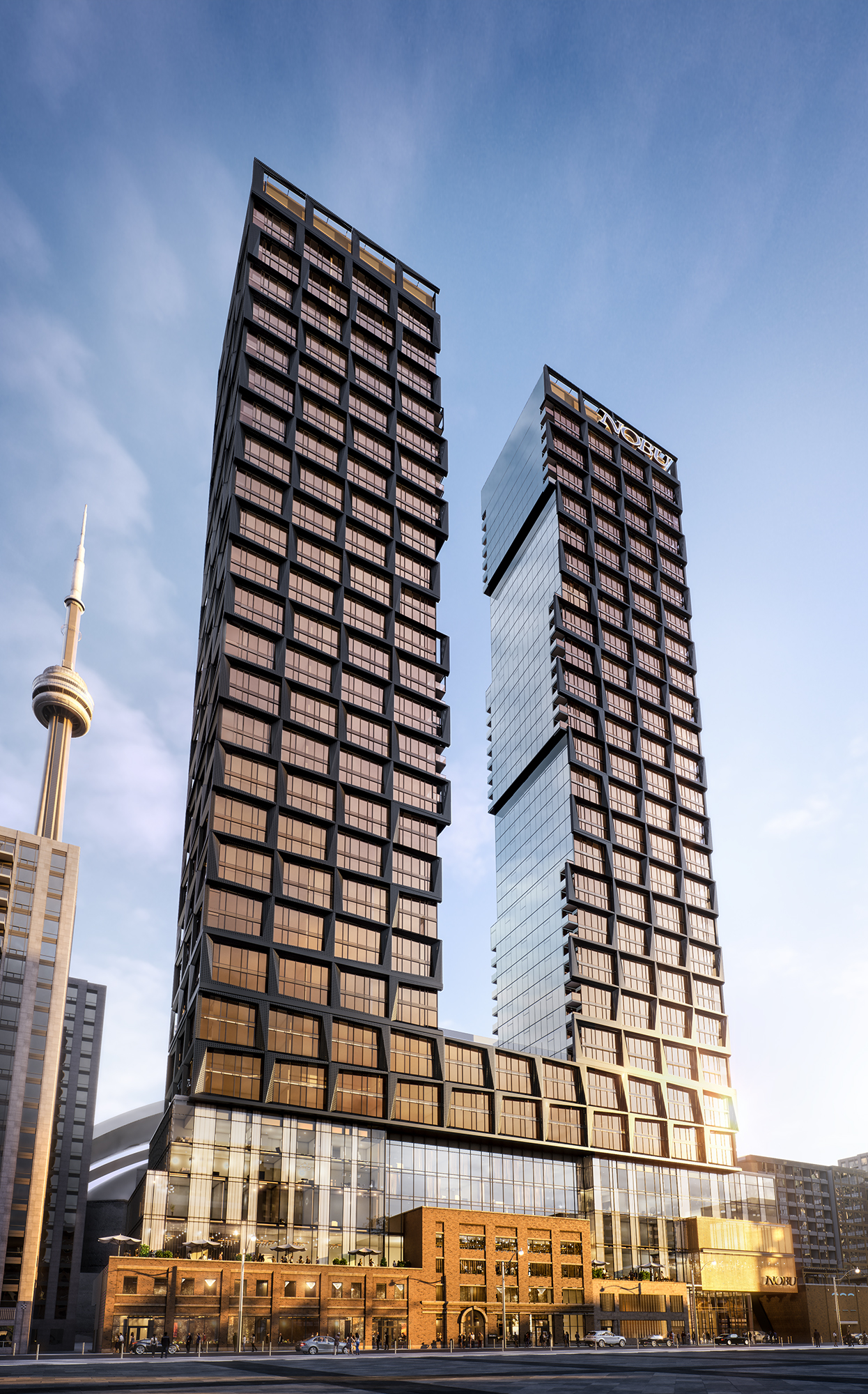

“NO MATTER WHAT SETBACKS YOU FACE, YOU CAN’T ALLOW THEM TO STOP YOU FROM FOLLOWING YOUR DREAMS. ONCE YOU KNOW WHAT YOUR TRUE PASSION IS, NEVER GIVE UP UNTIL YOU ACHIEVE IT.”
Despite its incredible accomplishments, to frame the Nobu phenomenon as the product of mere chance — and not the resolve or inspiration of an improbable friendship — would perform a great disservice to what De Niro and Matsuhisa have built.
After all, so much of this phenomenon circles back to the persistence of that child from Saitama — who store down adversity and remained true to his roots — and the legendary thespian who immediately sensed greatness in him. To the shatterproof bond they forged decades ago, and the skyrocketing empire it gave way to.
“I would have never in a million years imagined that I would eventually own over 30 restaurants and then hotels,” contemplates Matsuhisa. “I faced many challenges and setbacks in the early years, and came close to giving up on everything, including my life.”
Make no mistake, Matsuhisa’s story is straight out of Tinseltown — ironic when you think about the brand’s most distinguished clientele.
“No matter what setbacks you face, you can’t allow them to stop you from following your dreams. Once you know what your true passion is, never give up until you achieve it.”
For his part, be it in entertainment or hospitality, De Niro maintains that Nobu’s success doesn’t boil down to one magic ingredient. The recipe which has sustained its ascension — and penned Matsuhisa’s own Hollywood ending — is remarkably uncomplicated.
“Nobu knows it’s the little details that make a huge difference,” De Niro contends. “We’ve worked together for over 20 years, and the relationship works well because of what we both bring to the table.”
De Niro, of course, is known to be a man of few words. Which makes his following pronouncement a more than apt conclusion.
“Give strong effort and the best service, and the results will be there.”








